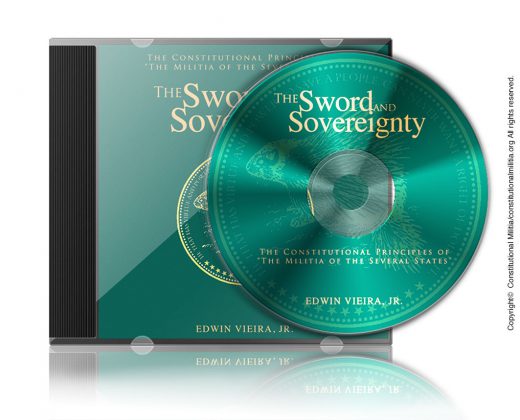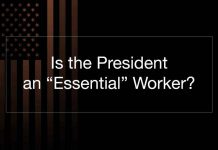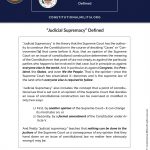Last Updated on October 3, 2021 by Constitutional Militia
As the readers of my columns on News With Views are aware, for more than the past decade I have attempted to awaken Americans who consider themselves “constitutionalists”, “patriots”, “friends of the Second Amendment”, and like-minded people to the importance of revitalizing “the Militia of the several States”. But my efforts have met with scant success. Whether the fault lies with the author of these missives or the audience to which they were directed may be debatable. The facts remain that, not only have vanishingly few Americans evinced any interest in this matter, but also all too many who have taken note of my work have reacted to it in a singularly negative, if not overtly hostile, fashion.
The latest manifestation of this dog-in-the-manger attitude is the refusal of the Petitioners in the pending case Kolbe v. Hogan, No. 17-127 (U.S. Supreme Court) to consent to my filing of a brief amici curiae on their behalf. The decision which is the subject of this petition—Kolbe v. Hogan, 849 F.3d 114 (4th Cir. 2017)—is, in my estimation, the most egregious affront to the Second Amendment which has ever been handed down by any court in the United States. So my attempt to intervene in this case is not simply a quixotic, let alone an uninformed, effort on my part.
For those who are unfamiliar with procedure in the Supreme Court, a potential amicus curiae (“friend of the Court”) first seeks permission from the parties to file a brief, usually on behalf of one of the parties. If either party refuses consent, the amicus may file a motion for leave to file, requesting the Supreme Court to accept his brief notwithstanding that refusal.
Now, usually, parties who desire the Supreme Court to review their case through a petition for a writ or certiorari want to marshal as many amici briefs on their behalf as possible, in order to convince the Court that their petition not only has theoretical merit but also raises issues of general rather than merely passing concern. Indeed, in yesteryear, the all-too-close coördination of various amici with the parties they supported became something of an abusive “cottage industry”, which resulted in the Supreme Court’s issuance of its Rule 37.6, under which an amicus must certify that no counsel for any party has authored the amicus brief in whole or in part, and that no such counsel or any party has made a monetary contribution intended to fund the preparation or submission of such a brief. So, today, an amicus must be completely independent of the party whose position it supports, except to the extent under Rule 37.1 that the amicus brief brings to the Court’s attention matters which not only support that party but also apprise the Court of matters that the favored party will not emphasize in its petition but which nonetheless will be useful for the Court to consider.
In my brief amici curiae, as something of an expert on the Second Amendment I seek to inform the Court of critical matters related to the first thirteen words of the Amendment—to wit, “[a] well regulated Militia, being necessary to the security of a free State”—that (as my brief explained)
will “not * * * [be] brought to [the Court’s] attention by the parties”, but nevertheless “may be of considerable help to the Court.” Because these matters have “not [been] specifically noticed in the objections taken in the records or briefs of counsel” for the parties in a satisfactory manner to date, and are unlikely to be raised hereafter, th[e Supreme] Court should take them under consideration by way of the Amici’s brief, “that the Constitution may not be violated from the carelessness or oversight of counsel in any particular.” See Pollock v. Farmer’s Loan & Trust Co., 157 U.S. 429, 604 (1895) (separate opinion of Field, J.).
Of course, one would expect that the Respondents (here, Hogan et alia) would balk at having such information brought to the Court’s attention—but that, on the other hand, the Petitioners (here, Kolbe et alia) would be grateful for whatever assistance they could obtain from an amici brief prepared by someone who knows his business. After all, at the petition stage, the strategy must be for the Petitioners to amass whatever support is available that could convince the Court to hear the case on the merits.
If the reader goes to the SCOTUSBLOG on the Internet, and searches for Kolbe v. Hogan in the compilation under “Petitions”, he will find, not only Kolbe’s Petition for a Writ of Certiorari, but also the amici briefs filed on the Petitioners’ behalf. These include briefs from such amici as the NRA and the Cato Institute. Of these briefs, mine is the only one as to which the Petitioners have denied their consent to file.
When the reader peruses these briefs, he will see that mine is the only one which focuses on the first thirteen words of the Second Amendment. The rest rely on what I should describe as the erroneous “law-school solution” to the problem raised in Kolbe—focusing on such really irrelevant matters as whether so-called “assault rifles” are in “common use” by average Americans for individual self-defense in the home, and such ultimately self-defeating arguments as whether “the right of the people to keep and bear [such] Arms” is subject to one or another anti-constitutional judicial “balancing test” (so-called “strict scrutiny” or “intermediate scrutiny”) under the Supreme Court’s decision in District of Columbia v. Heller, 554 U.S. 570 (2008). None of these briefs, other than my own, points out that the actually controlling precedent is United States v. Miller, 307 U.S. 174 (1939); and that, applied in tandem, both Miller and Heller demand reversal of the Court of Appeals’ decision in a manner which absolutely guarantees—indeed, if the Second Amendment is properly construed, requires—average Americans’ possession of “assault rifles”.
Under these circumstances, one would expect that my amici brief would at least be welcomed sotto voce by the Petitioners, because they have nothing to lose, and everything to gain, from having the Supreme Court made aware of the arguments which that brief, and no one else, presents. But no—the Petitioners do not want my amici curiae brief even to be considered by the Court. Having kicked around in Supreme Court practice over the years—and not without some notable successes—I find Petitioners’ reluctance to further their own interests rather perplexing. This is a conclusion in which I expect those of my readers who study the various amici briefs to concur.
So the question I raise for my readers’ consideration is: “What is going on here?” Why do the Petitioners (and, for that matter, the other amici ostensibly on their side) treat the first thirteen words of the Second Amendment, not simply as irrelevant to their case, but also as so dangerous to mention that they refuse both to address them in their own briefs and to consent for my amici brief to bring them to the Supreme Court’s attention?
Do these people really believe that the first thirteen words of the Second Amendment are actually irrelevant to the last fourteen words, even though they all are included in the very same sentence? If this the way English grammar works? Is this the way constitutional interpretation works (or ought to work)?
At this point, the matter is in the hands of the Supreme Court. But, in the long run, the problem goes beyond what happens to my amici curiae brief or even to the petition for a writ of certiorari in Kolbe itself. Kolbe, after all, will not represent the final battle over radical “gun control” in this country. The struggle to secure “the right of the people to keep and bear Arms” will continue, unabated, until all of the twenty seven words of the Second Amendment are either upheld in their entirety or so disregarded, discounted, or diluted by ridiculous decisions of the Judiciary that the Amendment is reduced to the palest shadow of what the Founders intended it to be.
To be sure, readers of this commentary who are not members of the Supreme Court Bar are not in a position to influence the Court. But many of them are capable of bringing this matter to the attention of leaders of the NRA—who, more than anyone else, are responsible for floating the mistaken notion that the Second Amendment’s overriding concern is to enable average Americans to possess “Arms” for the purpose of individual self-defense. Not simply the words of the Amendment, but especially the pre-constitutional history which informs them, teach that community self-defense is that concern. See my book The Sword and Sovereignty: The Constitutional Principles of “the Militia of the Several States” (CD-Rom Edition, 2012).
So I urge my readers—in particular, those who are members of the NRA—to contact that organization and encourage its leadership to reevaluate its position. At no time in this country’s history could such reconsideration be more vital.
©2017 Edwin Vieira, Jr. – All Rights Reserved.





































